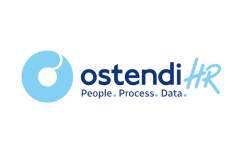- Executive Note
- Editorial note
- Interviews
- Human Resources
- Events Coverage
AI in the HR professional’s work
OstendiHR | Feb 26, 2024, 15:55


Technology has been with us for a long time, facilitating many activities. The same goes for artificial intelligence in the HR field. It provides real support in monitoring important indicators related to personnel policy, and consequently is an invaluable ‘partner’ in making decisions based on reliable data.
Recently, there have been numerous discussions about the development of AI – on the one hand, its important role in the development of modern organisations is highlighted, while on the other hand, there are concerns that it will replace humans.
What is artificial intelligence really? AI is a set of technologies designed to assist humans by improving their daily work. It automates and speeds up numerous repetitive tasks, as well as enables reliable and fast data analysis. It is not surprising, then, that the importance of technology in supporting the effectiveness of HR departments’ work is increasing year by year. Currently, 79% of companies use AI technology in their operations. This is undeniable evidence that artificial intelligence in the actions of People & Culture teams can truly change reality and on a massive scale. What is the reason for this phenomenon and how can you use it in your company?
AI in recruitment
One of the main areas where artificial intelligence can streamline HR team activities is recruitment. AI can help create and place recruitment ads in the right places, taking into account words that attract the interest of the right candidates. Recruitment tools based on AI can search for keywords in submitted resumes and select those that best fit the job profile. This tool can also be used to automate initial contact or conduct preliminary interviews with candidates. This saves time that was previously spent on time-consuming analysis of submitted applications, scheduling, and reminding about recruitment meetings.
However, it is important to remember that recommendations received from systems supporting the hiring process are only support for decision-making. They are based on a large amount of historical data processed by statistical algorithms. Thus, they do not take into account the variability of the current environment and where your organisation currently stands. Therefore, it is important to remember that each recommendation requires individual assessment every time.
Daily support for teams
Another area where artificial intelligence will perform well is in automating and streamlining the onboarding process. Thanks to technology, preparing employment documentation, conducting orientation training, and providing key information to new employees no longer requires the involvement of a large number of people. The future employee receives a set of materials at the right time, and the ‘Onboarding Assistant’, a technology that uses language models, answers their questions.
In the employee lifecycle, the automation of HR processes can also be found in the area of organising teamwork. Thanks to digitalisation, HR representatives no longer need to spend many hours calculating leave reserves or other important office work indicators.
AI and employee development
Focusing on employee development is one of the key tasks of HR departments. Here too, AI can provide real support for us. Artificial intelligence can support us in analysing training needs and planning development paths. It can identify competency gaps and consequently prepare recommendations for individual employees and/or entire teams. It also plays a supportive role in setting and monitoring goals.
In conclusion, AI is not any artificial entity just a collection of technologies that we can find among the applications available on the market. One such solution is the OstendiHR platform, which allows us to manage HR processes throughout the employee lifecycle. The great advantage of such tools is the ability to obtain reliable and clear reports, based on which we can easily make analyses and make well-informed business decisions. Unlike free AI tools, platforms of this type also take care of data protection and GDPR-related issues, making the use of such solutions safe for your organisation.
Limitations of artificial intelligence
When deciding to use commonly available technologies utilising LLM (such as ChatGPT or Google Gemini) or predictive models, one must be aware that this may entail certain risks.
A topic worth mentioning in the discussion of the use of AI technologies are ethical issues and the limits of using artificial intelligence in working with people. The importance of this issue is currently indicated by extensive discussions at the level of the European Parliament. AI is only a collection of information developed by advanced algorithms fuelled at the right time and moment by humans. AIs do not yet have the ability to differentiate complex emotions or consider cultural, ethnic, or social differences. Blind trust in technology can lead to exclusions, prejudices, or conflicts. Therefore, it is important to remember that AI should support human decision-making rather than replace it – especially in such a delicate area as managing human potential.
Awareness of which AI tools can support HR teams in their daily work and the ability to use them correctly will be a significant competitive advantage. Efficient use of artificial intelligence capabilities will be one of the most important skills of the future. Are you ready for it?







